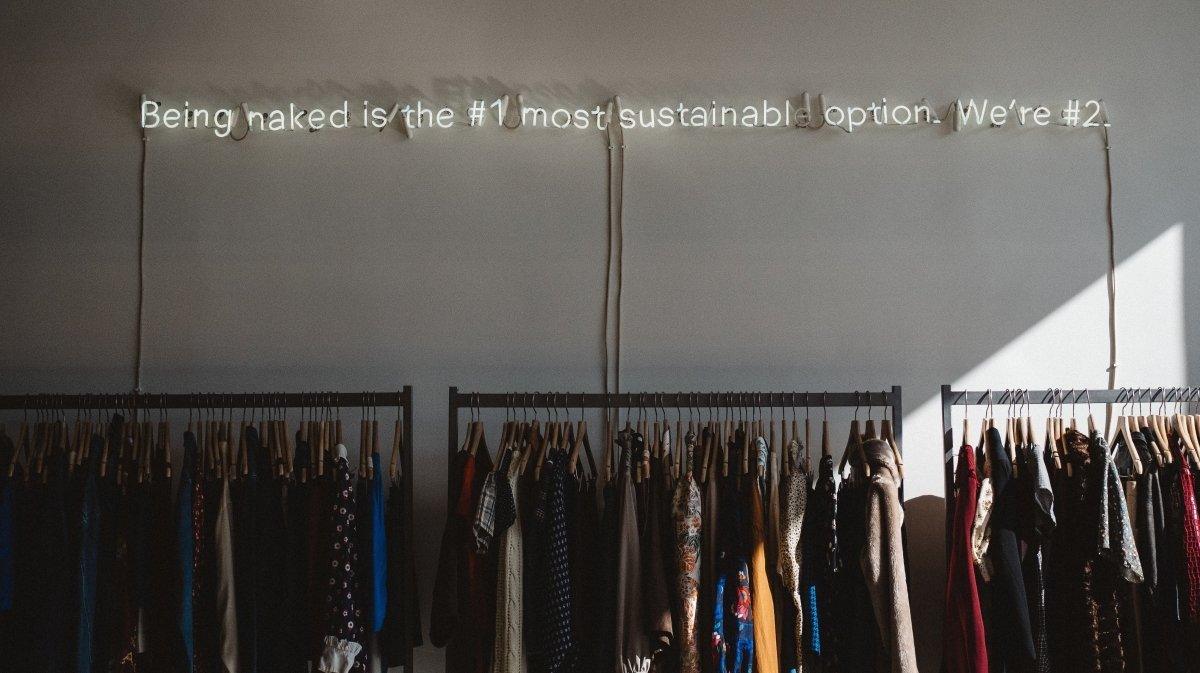Dressing Green: Making A Sartorial Statement With Sustainability

Over the past decade, the UK has witnessed a seismic shift in fashion. Gone are the days when quantity overshadowed quality, with fast fashion ruling the roost. Nowadays, everyone wants to be part of the ethical fashion movement, meaning it’s now part of mainstream culture. British consumers are increasingly discerning, prioritising not just the aesthetics of their attire, but also its ethical footprint.
With an increased focus on buying clothing that’s good for the planet and the people living on it, the fashion market has evolved. As a consumer, it’s now easier than ever before to find out about the ethical practices of the companies that make your clothes. Keep reading, and we’ll offer some tips on how to find clothes that suit your style and are ethically sourced.
Why Sustainable Fashion Matters
Fashion, at its core, is an expression of identity, culture, and individualism. Yet, the implications of our sartorial choices extend far beyond personal style. The production and transportation of clothes are incredibly wasteful and require a lot of fossil fuels, so regularly buying new clothes can be seen as a major contributing factor to climate change.
It’s not just sustainability that’s affected by the quick production of cheap clothing: it also often results in unethical working conditions and low standards of living for many garment factory workers. As Brits, our purchase decisions have the power to fuel change. Opting for sustainable fashion isn't just about embracing eco-friendly materials; it's about supporting an ethos that values both people and the planet. By choosing ethical brands, we not only flaunt our style but also foster a fashion ecosystem that's responsible, equitable, and environmentally conscious.
Adorned with Conscience
Jewellery has long been cherished not just for its aesthetic allure but as a marker of significant life moments and personal stories. However, the dark underbelly of the jewellery industry — from conflict diamonds to environmentally harmful mining practices — has led to an urgent call for transparency and sustainability.
In response, jewellers like Ingle & Rhode are creating ethical engagement rings, as well as earrings and necklaces. They're prioritising conflict-free gemstones, recycled metals, and transparent supply chains, ensuring that every piece tells a positive story. Buying ethical jewellery isn't merely about wearing a beautiful accessory; it's about making a statement that beauty doesn't have to come at the expense of our planet or its inhabitants. As consumers, supporting these conscientious brands allows us to be a part of a transformative movement, where adornments mirror not just personal taste but a commitment to global betterment.
Getting Started With A Green Wardrobe
Transitioning to an eco-friendly wardrobe can feel overwhelming, especially when confronted with a market dominated by fast fashion. Yet, with intentionality and informed choices, one can cultivate a sustainable style. Start by auditing your closet, understanding what you truly wear, and identifying gaps. Instead of impulsive buys, focus on timeless pieces that are versatile and durable.
When purchasing new items, consider their origins. Opt for brands that prioritise ethical labour practices and environmentally-friendly materials. Reconnect with the lost art of mending; a stitch in time not only saves nine but also extends the life of beloved garments. Embrace the second-hand market; vintage shops and charity stores can be goldmines for unique, high-quality finds. Lastly, remember that sustainable fashion is a journey, not a destination. By taking small, consistent steps, we can collectively make a sartorial statement that champions both style and sustainability.

The True Cost Of Fast Fashion
Fast fashion has transformed the way we shop, offering trendy, affordable clothing at an unprecedented pace. But this convenience comes at a significant cost. Environmentally, the rapid production cycles of fast fashion exacerbate waste, with landfills swelling with discarded garments. The industry's enormous water consumption, coupled with the toxic chemicals used in dyeing and processing, wreaks havoc on our waterways, affecting marine life and human communities alike.
Socially, the pressure to produce low-cost clothing frequently translates to exploited labour. Garment workers, often in developing nations, face gruelling hours, unsafe conditions, and meagre wages. Tragic incidents, like the Rana Plaza collapse in 2013, spotlight the life-threatening risks they endure.
For UK consumers, understanding these hidden costs prompts a re-evaluation of our purchasing habits. By opting for sustainable alternatives, we can challenge the status quo, voting for change with our wallets and our wardrobes.
Slow Fashion Vs. Fast Fashion
The distinction between slow and fast fashion is stark, and it revolves around consumption habits and production values. Fast fashion is marked by its fleeting nature; trends come and go rapidly, encouraging consumers to buy more, wear less, and discard quickly. It's a cycle that profits from mass production at minimal costs, often to the detriment of environmental sustainability and worker rights.
Slow fashion, on the other hand, is a thoughtful approach to textile creation and purchase. It champions longevity, craftsmanship, and ethical production. Garments are designed for durability and timeless appeal, and their creation respects both human dignity and environmental limits.
As we become increasingly attuned to the profound impacts of our sartorial choices, the call for sustainable and ethical fashion grows louder. From understanding the hidden costs of fast fashion to celebrating the artisans of the slow fashion movement, it's evident that our wardrobe decisions have far-reaching consequences.
By opting for quality over quantity, supporting transparent brands, and championing ethical craftsmanship, we don't just curate a personal style; we craft a legacy. Together, we can ensure that our fashion statements resonate with responsibility, compassion, and sustainability.